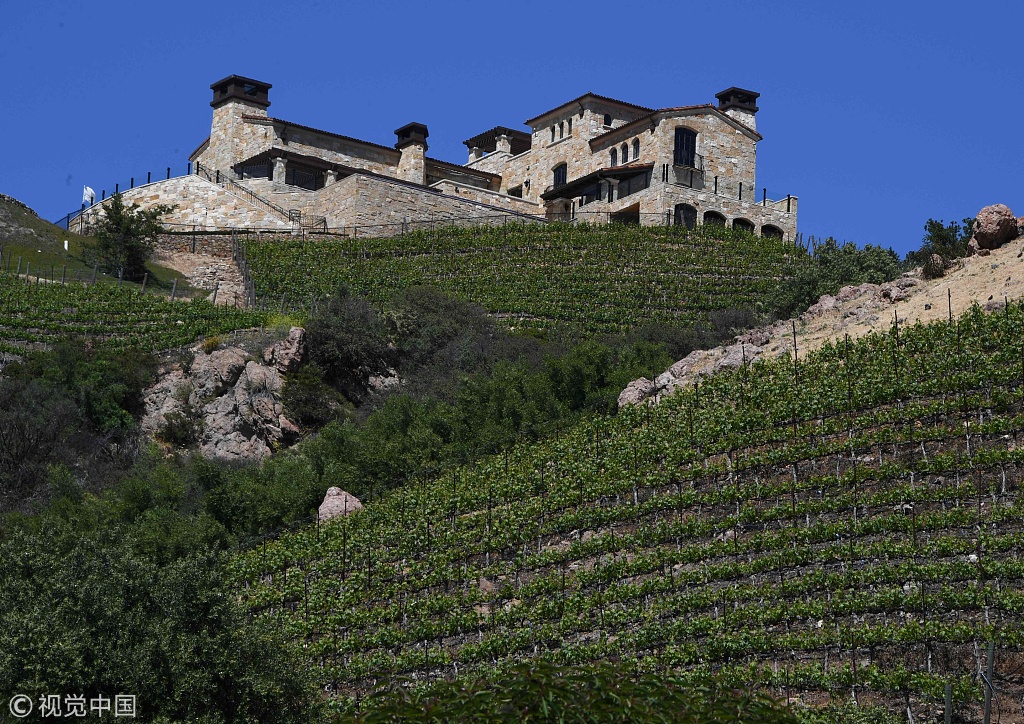Dispute puts squeeze on US vintners


California’s winemakers are feeling the impact of China’s recently announced tariff on US wines as a retaliatory measure against the Trump administration’s proposed tariffs on China’s steel and aluminum.
Wente Vineyards, a winery in Livermore, California, recently ran into a major hurdle after 23 years of exporting to China. The oldest continuously operating family winery in the US suspended the shipment of 5,000 cases of wine to China because of the uncertainties arising from the trade tariff fight.
“We are disappointed that California’s wine business has become collateral damage for a bigger picture that wine has nothing to do with,” said Michael Parr, vice-president of international sales for the vintner Wente Family Estates.
Some of the cases of wine originally destined for China have been prepared for shipment and are awaiting further instructions from Chinese importers. Other cases will be used to fill wine orders to Europe, said Parr.
Chinese importers are holding off because of the uncertainty of how long the tariff would be in effect and potential backlash from Chinese consumers, he said.
The 15 percent added tariff on US wines, announced on April 2, would increase the total tariff and tax paid on a bottle of US wine imported to China from 48.2 percent to 67.7 percent.
Despite the short-term negative effects, US winemakers are more concerned about the long-term impact.
“My biggest fear is the importers have alternative countries that they can buy from. There are wine regions in the world that are lined up to take advantage of this,” said Parr. His winery saw 80 percent year-on-year growth in the Chinese market in the first quarter of this year.
Wines from Chile, Georgia and New Zealand currently enter China tariff-free and pay only the 30 percent combined tax rate. Australian wines will be tariff-free starting in 2019, according to the California Wine Institute, an advocacy group representing over 1,000 wineries.
Parr said California wine can compete against Australian wine in price and quality. “But with 67 percent (tariffs) on our wines, we can’t compete with that,” he said.
New tariffs target 128 US commodities, most of them on agricultural products produced in California. The state’s farm industries have been urging the Trump administration to start negotiations with China.
“California’s wine grape growers believe negotiation offers the best path toward resolving disputes with our trade partners,” said John Aguirre, president of California Association of Winegrape Growers.
“At this point, we urge members of the California congressional delegation and other farm state representatives and senators throughout the United States to step up their efforts and urge President Trump to quickly resolve the current trade dispute with China,” he said.
Parr said the timing is perfect to go into China now. “What the Chinese consumers want is affordable luxury and brand authenticity. That’s exactly the positioning of Wente’s wines in China,” he said.
“We are committed to the market. We trust the leaders of China and the US will eventually, after all the rhetoric, be able to sit down and come up with a win-win resolution,” said Parr.

































